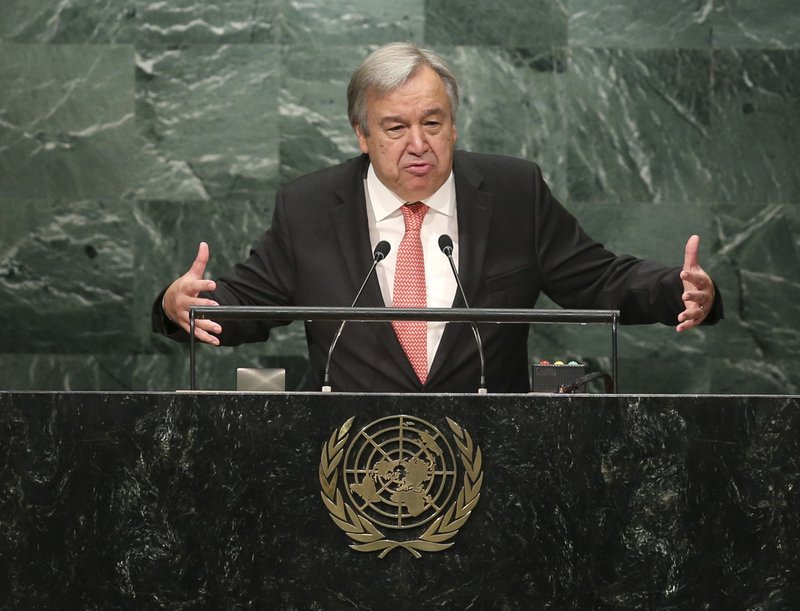UNITED NATIONS — The U.N. Security Council was called into emergency session Friday after North Korea conducted its longest-ever test flight of a ballistic missile, to talk about what to do now that Kim Jong Un has ignored its latest round of sanctions.
France's Foreign Ministry said in a statement that the country is ready to work on tougher U.N. and EU measures "to convince the regime in Pyongyang that there is no interest in an escalation, and to bring it to the negotiating table." It said North Korea will also be discussed during next week's annual gathering of world leaders at the General Assembly.
The intermediate-range weapon North Korea launched early Friday from Sunan, the location of Pyongyang's international airport, hurtled over U.S. ally Japan into the northern Pacific Ocean.
The launch signaled a big technological advance.
Since U.S. President Donald Trump threatened North Korea with "fire and fury" in August, the North has conducted its most powerful nuclear test, threatened to send missiles into the waters around the U.S. Pacific island territory of Guam and launched two missiles of increasing range over Japan. July saw the country's first tests of intercontinental ballistic missiles that could strike deep into the U.S. mainland when perfected.
U.N. Secretary-General Antonio Guterres condemned the missile launch as a serious violation of Security Council resolutions, coming less than two weeks after the North's sixth nuclear test, which also violated a U.N. ban.
The Security Council's emergency meeting Friday was behind private.
On Monday, the council unanimously approved its toughest sanctions yet on North Korea over its nuclear test, which Pyongyang said was a hydrogen bomb. The U.S. said the measures, including a ban on textile exports, combined with previous sanctions would ban over 90 percent of North Korea's exports reported in 2016.
North Korea's Foreign Ministry denounced the sanctions and said the North would "redouble its efforts to increase its strength to safeguard the country's sovereignty and right to existence."
South Korea's Joint Chiefs of Staff said the latest missile traveled about 2,300 miles and reached a maximum height of 478 miles. Guam, which is the home of important U.S. military assets, is 2,112 miles away from North Korea.
Despite its range, the missile probably still is not accurate enough to destroy Guam's Andersen Air Force Base, said David Wright, a U.S. missile expert with the Union of Concerned Scientists.
Read Saturday's Arkansas Democrat-Gazette for full details.
